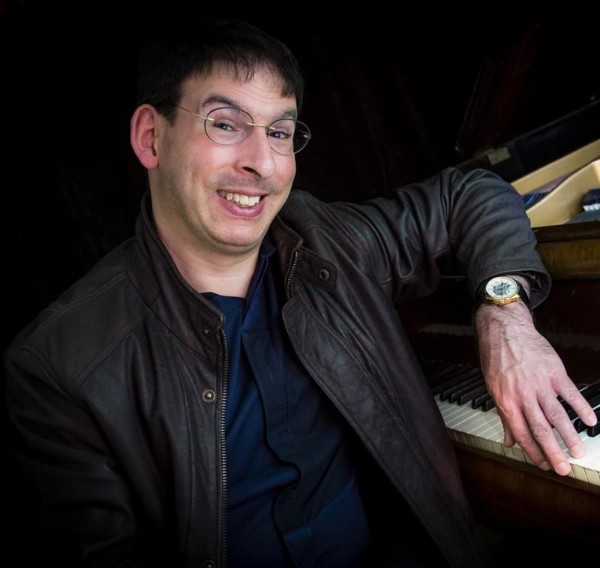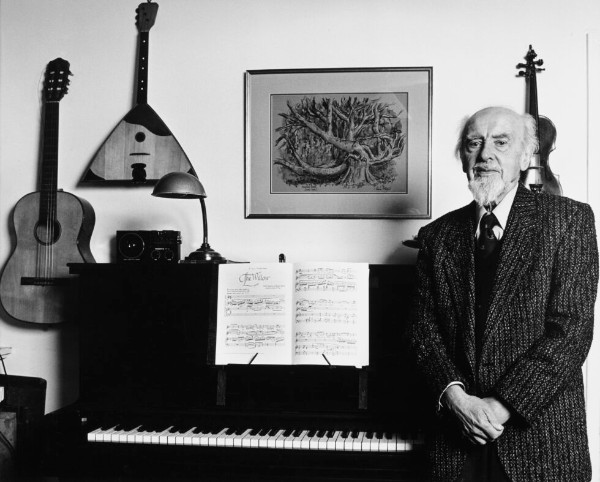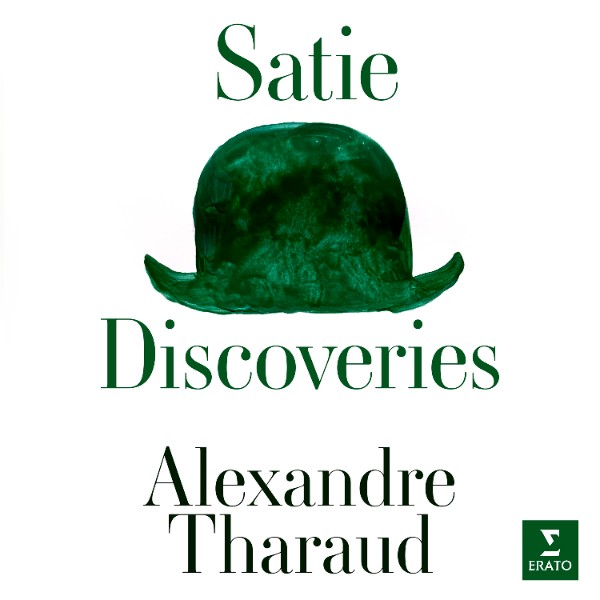Pianist Duncan Honeybourne, indefatigable champion of lesser-known and rarely-performed British piano music, brings another gem to wider attention with his recent recording of music by Thomas Pitfield (Heritage Records, March 2025).

Duncan Honeybourne
Born in Bolton, Lancashire, in 1901, Thomas Pitfield was a polymath – a poet, artist, engraver, calligrapher, master craftsman, furniture builder and teacher, and a prolific, largely self-taught composer. He left school at 14 to take up a seven-year apprenticeship in engineering, but took private lessons in piano and harmony in his spare time, his musical studies later enhanced by a year at the Royal Manchester College of Music (RMCM, which became the Royal Northern College of Music).
After unsuccessfully attempting a freelance career as a musician, Pitfield won a scholarship to study art and cabinet-making and pursued a career as an arts and crafts teacher in the Midlands, during which he became increasingly known as a composer. In 1947, he was invited to teach composition at the RMCM, where his pupils included John Ogdon, John McCabe, Christian Blackshaw and Ronald Stevenson.
Duncan Honyebourne was invited by the Pitfield Trust to make a recording of Pitfield’s piano music, and this led to a research visit to explore the composer’s manuscripts at the Royal Northern College of Music Library.
“I was delighted to find a range of striking works of high quality, which I began assembling into a coherent, representative and attractive recital programme.” – Duncan Honeybourne

Thomas Pitfield
The resulting recording is indeed striking, showcasing the breadth and imagination of Pitfield’s writing. Here is music which is refined, graceful, witty, playful and stylish. In addition, the list of dedicatees reads like a ‘Who’s Who’ of British pianists, with Pitfield dedicating works to, amongst others, John Ogdon (Pitfield’s favourite pupil) and Gordon Green (who taught Stephen Hough).
Drawing influence from composers such as Vaughan Williams, Delius and Grainger, Pitfield tended to write small-scale works and miniatures, often intended for children and amateur players. As a result, much of the music on this disc feels highly accessible, often playful and always attractive. Yet there are hints of other influences too: the opening Toccata has echoes of Ravel, in both its style and construction: its outer toccata sections bookend a more serene, lyrical interlude. The Solemn Pavan, which follows, has a hymn-like inner calm, its harmonic language redolent of Elizabethan music.
Thomas Pitfield: Toccata (Duncan Honeybourne, piano)
Pitifield recalls Bach and his contemporaries in the historic dance forms of the Circle Suite, though the music is firmly rooted in the first half of the twentieth century. Diversions on a Russian Air is dedicated to the celebrated British pianist John Ogdon and is a short set of variations, quirky and characterful with sparkling runs and piquant modulations.
Thomas Pitfield: Diversions on a Russian Air (Duncan Honeybourne, piano)
Other highlights for me include the pastoral Novelette, the witty Impromptu on a Tyrolean Tune, and the Sonatina No. 2, the most extended work on this disc. Two bubbling, folksy outer movements frame the melancholy, reflective Threnody. There is also a charming miniature Nocturne, its gentle chords underpinning a lyrical, somewhat yearning melody.
The Homage to Percy Grainger – a good friend of Pitfield’s RMCM pupil Ronald Stevenson – has echoes of Grainger’s own music and bravura, often humorous style, demonstrating Pitfield’s ability to evoke the compositional language of other composers. After the swagger comes the Cameo and Variant, which has all the simplicity of a lyrical folksong. It’s the ideal close to a thoroughly enjoyable and highly engaging album, the music played by Duncan Honeybourne with style, sensitivity, insight and, above all, a wonderful range of colours and expression.
Thomas Pitfield: Homage to Percy Grainger (Duncan Honeybourne, piano)

This splendid introduction to Pitfield’s piano music includes several world premiere recordings and was made possible thanks to the support of the Pitfield Trust.
For more of the best in classical music, sign up for our E-Newsletter

